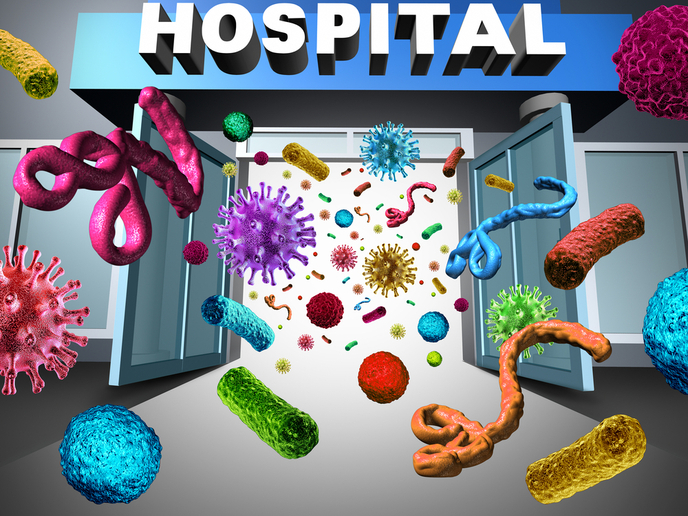How to prevent the spread of germs in hospitals
Infections that are caused by microorganisms like bacteria, viruses and some parasites, particularly drug-resistant ones known as superbugs, are a major threat to health worldwide. Their existence in hospitals leads to increasing mortality, patient suffering and rising healthcare costs. The EU-funded FLEXPOL project has been developing a solution to this problem through a combination of materials and surface structures to provide a new means of sterilisation. The project team has produced a three-layered adhesive film with polypropylene (PP), a raw material used in food packaging applications. In a news item on the website of digital publication ‘Open Access Government’, project manager Maximilian Kosel from Fraunhofer Institute for Production Technology IPT explains the technology: “While the outer layers of the film are made from a PP material with a very high stiffness to provide maximum abrasion resistance, the inner layer is made of a PP grade, which is suitable for the introduction of active substances into the film.” These active substances, which are released in a controlled manner, are essential oils from natural resources like oregano or thyme with high antimicrobial efficiency. The top layer combines micro/nanostructures that mimic the lotus plant whose leaves have self-cleaning properties. The material developed by FLEXPOL partners prevents water from forming wet areas, thus obstructing the growth of bacteria. “The combination of micropillars and nanospikes (black silicon) causes very high water contact-angles. This results in highly hydrophobic behaviour and creates a ‘lotus effect’ on the surface. As bacteria need a medium to grow, the absence of water effectively prevents the microorganisms from growing and spreading over the surface.” Kosel adds: “Even before adding the oils to the inner layer, it was already proven that the structure alone has strong antimicrobial characteristics and was able to reduce an initial number of Escherichia coli (E. coli) bacteria by 90% within 90 minutes.” The project team believes that the reduction in the transmission of infections in hospital settings will mean that fewer antibiotics will be used, ultimately helping to fight the dangerous increase of multidrug-resistant bacteria. The material will provide durable protection with good resistance on high-touch surfaces, and will ensure hygiene and patient safety, limiting the use of disinfectants. Wide range of applications The ongoing 3-year FLEXPOL (Antimicrobial FLEXible POLymers for its use in hospital environments) project will end in late 2019. In addition to healthcare, other application fields identified by project partners include public transportation, consumer goods and construction. For example, FLEXPOL material could be used to sterilise surfaces in buses or aircraft, or in public restrooms in transportation hubs and airports. Manufacturers of a variety of goods, from mobile phones and tablets to toys, as well as the packaging sector in food and drink production, could also benefit from FLEXPOL’s antibacterial film, according to the project website. The materials, structures and processes developed by FLEXPOL have already been tested in the lab. The project team says FLEXPOL is currently at the pre-market stage. “A final validation in a hospital environment will show the efficiency of the film in real-life conditions,” notes the same news item. For more information, please see: FLEXPOL project website
Countries
Germany



